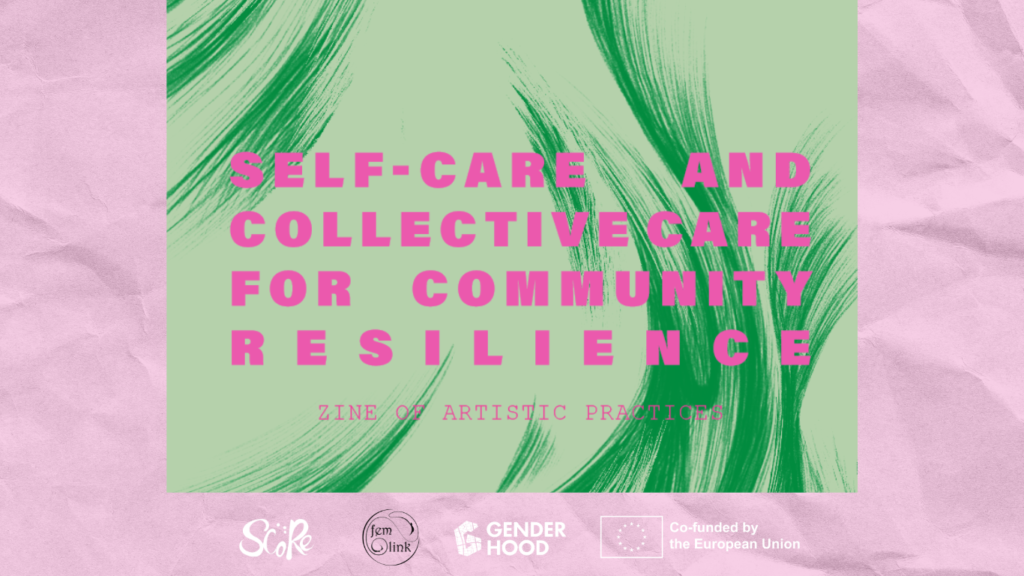Care is essential, care is beautiful and has to come up front any line of work.
This Zine was created as part of the international Self-care and Collective Care for Community Resilience project, which is structured around research and practical application. It serves as an outcome document, highlighting the importance of care analytically and in practice.
What is care after-all?
Although ideologically opposing definitions are circulating today in the public sphere, we opted to use some of the ‘radical care’ definitions based on queer of colour and crip critique, and combine them with the ecologically sensible vision of care as diverse activities aiming to maintain and continually repair the world. In such a synthetic definition the concept of care would refer to a multitude of life-sustaining practices that include not only humans but the entire diversity of living forms as well as inanimate matter.
To whom is this Zine addressed?
The Zine provides a starting point for those individuals who wish to deepen their understanding and apply care practices at an individual level, at a collective one (in their communities, workplaces, solidarity and activist groups etc) or both. It is designed to inspire.
Specifically, in the Zine you will find
- Care as notion and practice. An Introduction
- A view on defining care practices: Collective Care Research
- Participatory Knowledge Exchange Laboratory
- Selected Self-Care and Collective Care Practices
- Bibliography
Download the Zine
In the insert below, you’ll find specific self and collective care practices shared by members of our communities.
Access it online or print it out to personalize with your own notes, supporting your journey in self and collective care!
Download the Digital Insert
Download the Printed Insert
The project is implemented by Femlink and Genderhood and is co-funded by the European Union. Views and opinions expressed are however those of the author(s) only and do not necessarily reflect those of the European Union or OeAD-GmbH. Neither the European Union nor the granting authority can be held responsible for them.

